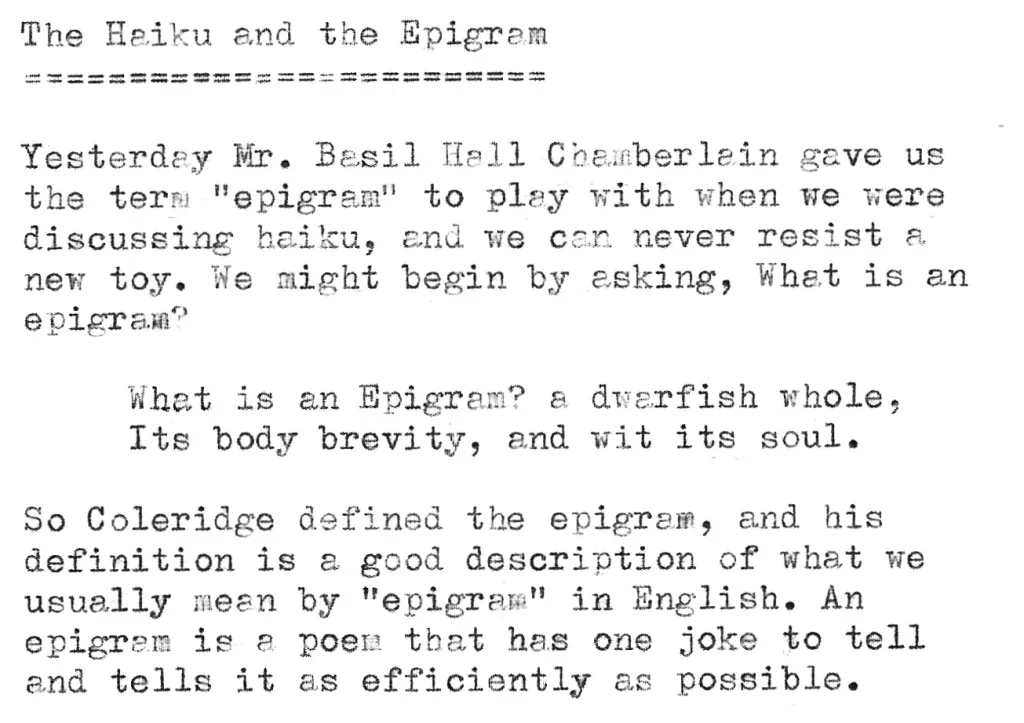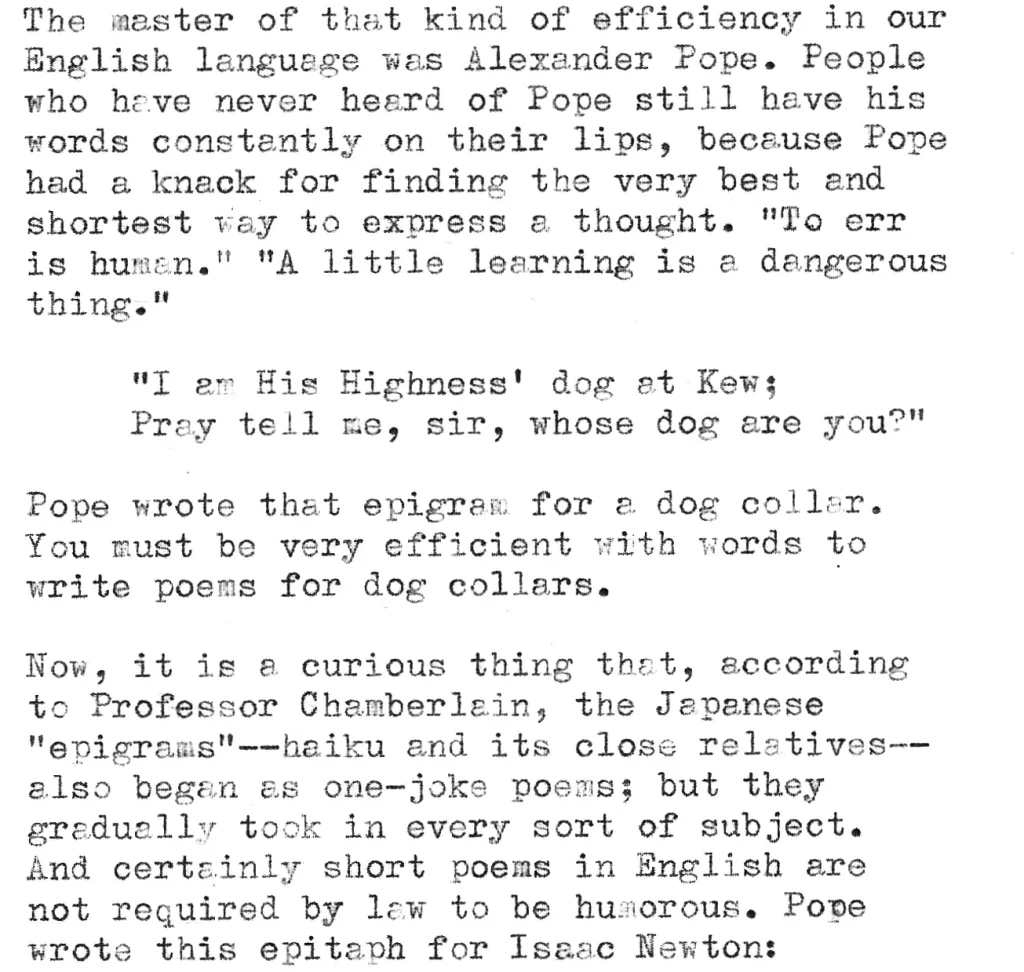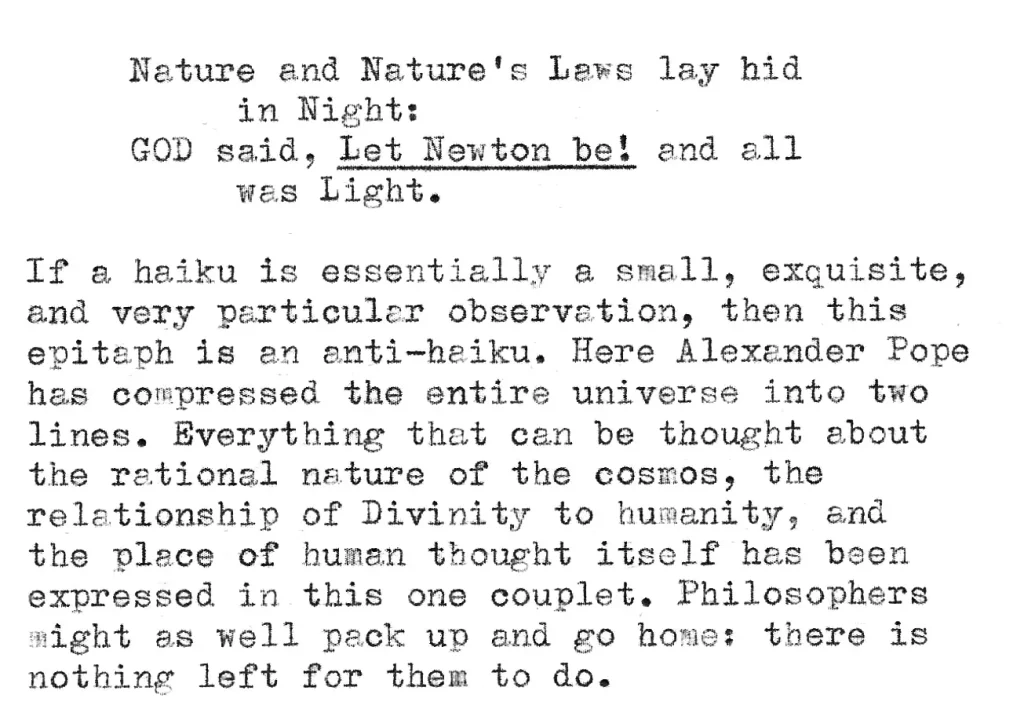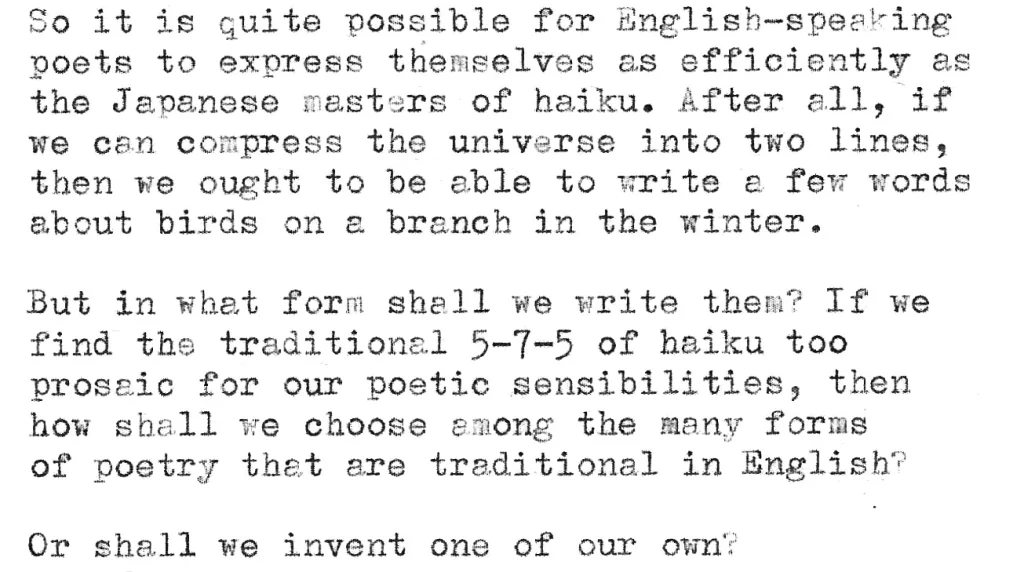



Once again the text (written on an Olivetti Valentine) is transcribed below for your electronic convenience.
Yesterday Mr. Basil Hall Chamberlain gave us the term “epigram” to play with when we were discussing haiku, and we can never resist a new toy. We might begin by asking, What is an epigram?
What is an Epigram? a dwarfish whole,
Its body brevity, and wit its soul.
So Coleridge defined the epigram, and his definition is a good description of what we usually mean by “epigram” in English. An epigram is a poem that has one joke to tell and tells it as efficiently as possible.
The master of that kind of efficiency in our English language was Alexander Pope. People who have never heard of Pope still have his words constantly on their lips, because Pope had a knack for finding the very best and shortest way to express a thought. “To err is human.” “A little learning is a dangerous thing.”
“I am His Highness’ dog at Kew;
Pray tell me, sir, whose dog are you?”
Pope wrote that epigram for a dog collar. You must be very efficient with words to write poems for dog collars.
Now, it is a curious thing that, according to Professor Chamberlain, the Japanese “epigrams”—haiku and its close relatives—also began as one-joke poems; but they gradually took in every sort of subject. And certainly short poems in English are not required by law to be humorous. Pope wrote this epitaph for Isaac Newton:
Nature and Nature’s Laws lay hid in Night:
GOD said, Let Newton be! and all was Light.
If a haiku is essentially a small, exquisite, and very particular observation, then this epitaph is an anti-haiku. Here Alexander Pope has compressed the entire universe into two lines. Everything that can be thought about the rational nature of the cosmos, the relationship of Divinity to humanity, and the place of human thought itself has been expressed in this one couplet. Philosophers might as well pack up and go home: there is nothing left for them to do.
So it is quite possible for English-speaking poets to express themselves as efficiently as the Japanese masters of haiku. After all, if we can compress the universe into two lines, then we ought to be able to write a few words about birds on a branch in the winter.
But in what form shall we write them? If we find the traditional 5-7-5 of haiku too prosaic for our poetic sensibilities, then how shall we choose among the many forms of poetry that are traditional in English?
Or shall we invent one of our own?